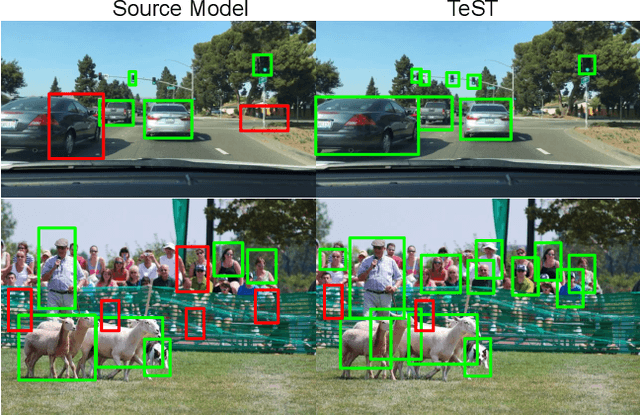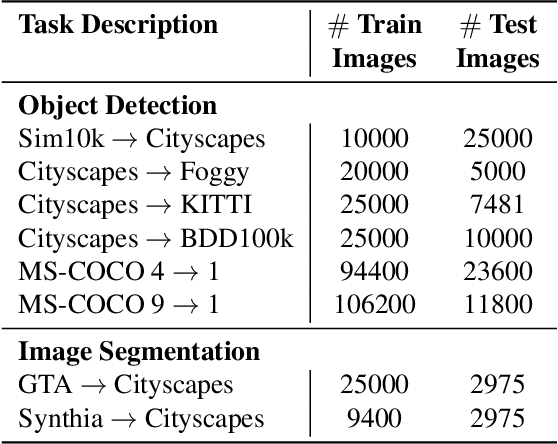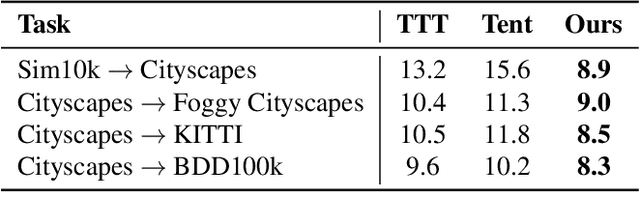TeST: Test-time Self-Training under Distribution Shift
Paper and Code
Sep 23, 2022



Despite their recent success, deep neural networks continue to perform poorly when they encounter distribution shifts at test time. Many recently proposed approaches try to counter this by aligning the model to the new distribution prior to inference. With no labels available this requires unsupervised objectives to adapt the model on the observed test data. In this paper, we propose Test-Time Self-Training (TeST): a technique that takes as input a model trained on some source data and a novel data distribution at test time, and learns invariant and robust representations using a student-teacher framework. We find that models adapted using TeST significantly improve over baseline test-time adaptation algorithms. TeST achieves competitive performance to modern domain adaptation algorithms, while having access to 5-10x less data at time of adaption. We thoroughly evaluate a variety of baselines on two tasks: object detection and image segmentation and find that models adapted with TeST. We find that TeST sets the new state-of-the art for test-time domain adaptation algorithms.
 Add to Chrome
Add to Chrome Add to Firefox
Add to Firefox Add to Edge
Add to Edge